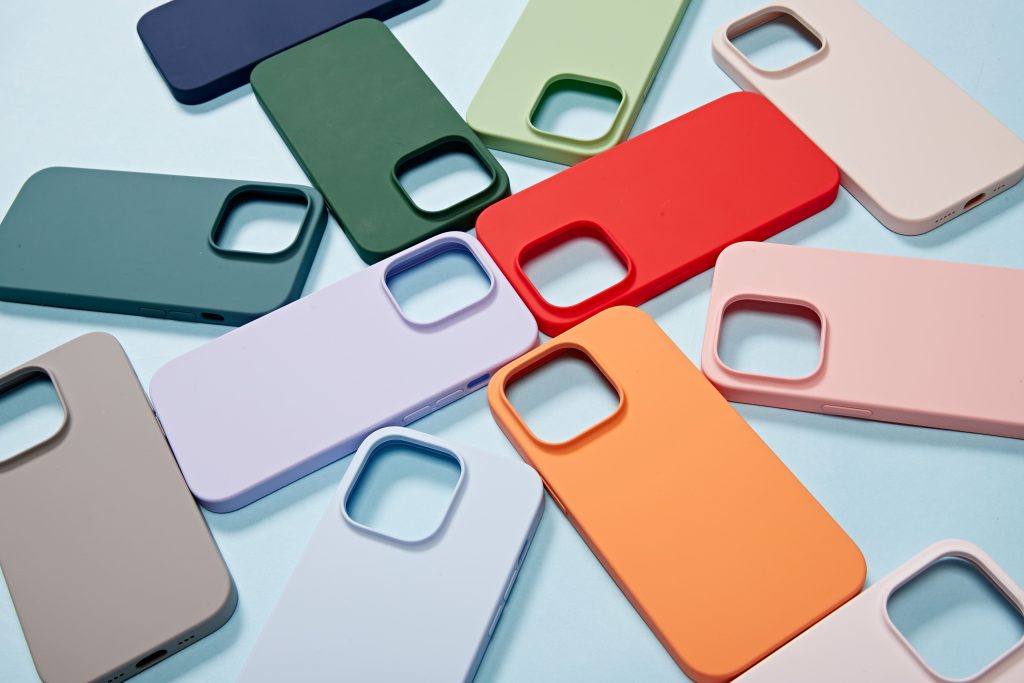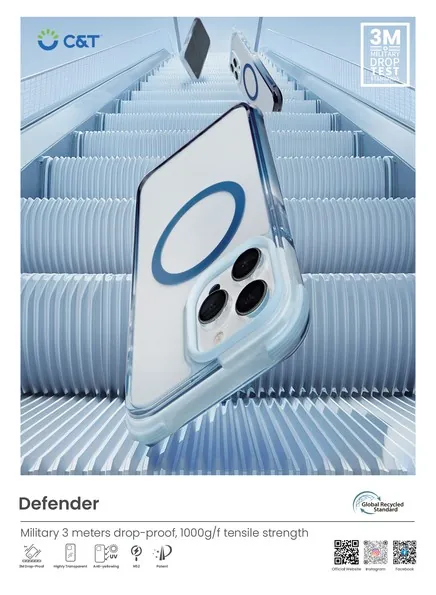Choosing a good phone case is essential to protecting your smartphone from daily wear and tear, accidental drops, and other potential damage. With countless options on the market, determining the best phone case can be difficult. This article outlines the key factors to consider when evaluating the quality of a phone case.

1. Material quality
The material a phone case is made of has a significant impact on its durability and ability to protect. Common materials include:
- Silicone and rubber: These materials are flexible, shock-absorbing, and provide a good grip to prevent accidental drops.
- Polycarbonate and TPU (thermoplastic polyurethane):** These materials are known for being rugged, with excellent impact resistance and durability.
- Leather: Provides a premium feel and good protection, although it may not be as impact-resistant as synthetic materials.
- Hybrid cases: Combine multiple materials (for example, a hard polycarbonate shell with a soft TPU interior) to enhance protection and functionality.
2.Design and fit
A good phone case should fit your device perfectly and not obstruct any ports, buttons, or cameras. Check for:
- Precision cutouts: Make sure all openings line up accurately with your phone’s ports, speakers, and camera.
- Button accessibility: Buttons should be easy to press and have responsive feedback.
- Slim profile: The case should provide protection without adding too much bulk to your phone.

3.Level of protection
Different cases offer different levels of protection. Consider your lifestyle and how much protection you need:
- Basic protection: Slim, lightweight cases protect against scratches and minor bumps for everyday use.
- Rugged protection: Heavy-duty cases have reinforced corners and multi-layer construction for excellent protection against drops and impacts.
- Water and dust resistant: Specialty cases are resistant to water, dust, and other environmental factors, making them perfect for outdoor activities.
4.Drop test certification
Look for cases that have been rigorously tested and certified like MIL-STD-810G, a military standard that ensures the durability of a case from shocks and impacts. Certified drop-resistant cases are tested to withstand drops from specific heights and angles, giving users peace of mind.

5.Grip and handling
A good case should enhance your grip and protect against accidental drops. Consider:
- Texture: Cases with textured surfaces or non-slip coatings improve grip.
- Ergonomics: The case should feel comfortable in your hand and not slip easily.
6. Aesthetics
While protection is crucial, the look and feel of your case is also important. Consider:
- Color and finish: Choose a case that complements your style, whether it’s classic black, a bright color, or a clear design.
- Customization: Some cases offer customizable options, such as interchangeable backs or personal engravings.
7.Brand reputation and reviews
Research brands that are known for producing high-quality cases. Read customer reviews and testimonials to gauge actual performance and satisfaction. Reputable brands often offer better warranties and customer service.
8.Additional Features
Modern phone cases can offer additional features to enhance your smartphone experience:
- Kickstands: can be used for hands-free viewing.
- Wallet cases: include card and cash slots, combining phone protection with wallet functionality.
- Battery cases: extend battery life, perfect for heavy phone users.

Conclusion
A good phone case strikes a balance between protection, design, and functionality. By considering material quality, fit, protection level, certifications, grip, aesthetics, brand reputation, additional features, and price, you can make an informed decision to choose the best case for your needs. Taking the time to choose the right case ensures your smartphone is protected and remains functional, extending its life and improving your overall user experience.





